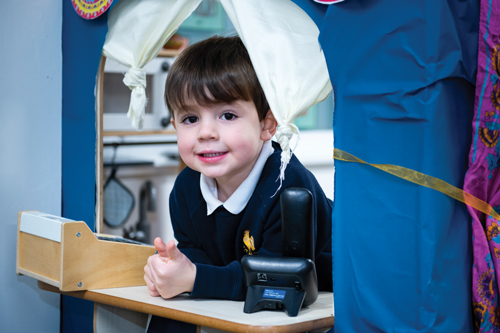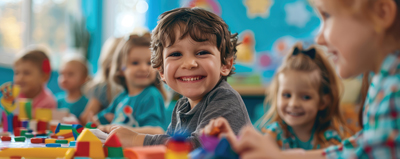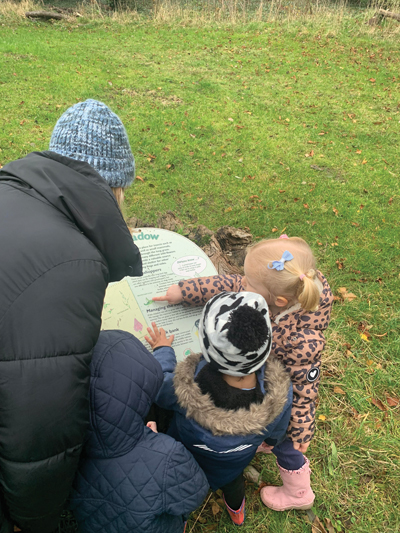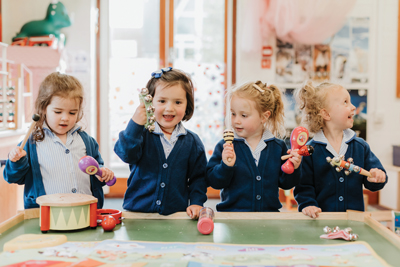
by Ivana Colvin
Little Chicks Teacher, Chinthurst School Nursery
As parents and educators, we often find ourselves caught up in the whirlwind of schedules, milestones and academic expectations for our little ones. In the pursuit of ensuring a bright future for our children, we might unintentionally overlook one of the most powerful tools at our disposal – play.
In the UK, the Early Years education system places a strong emphasis on the importance of play-based learning. In the best Early Years settings, play should not be considered a break from structured activities, rather it should be at the centre of fostering development, curiosity and a lifelong love for learning. At home, play is vital too, supporting your child’s growth, health and happiness.
One of the greatest gifts of play is its ability to nurture social skills. In the classroom and on the school playground, children learn to navigate social interactions, share, co-operate and challenge with their peers. These skills form the bedrock of healthy relationships and contribute to a positive learning environment. At home, family playtime is an ideal way to reinforce these social skills in a more intimate setting. Board games, collaborative projects and shared activities provide opportunities for your child to practice communication and teamwork with siblings and parents.
The Early Years curriculum also recognises the importance of nurturing creativity, and play is the perfect gateway to unlocking the boundless imagination which exists within each child. Creative activities embedded in the curriculum allow children to explore various forms of expression, from art and music to storytelling and drama. At home, opportunities for creative play are endless. Simple activities like drawing, crafting and storytelling stimulate a child’s imagination and encourage them to think outside the box. By embracing creativity in play, we cultivate a mindset that values innovation and problem-solving, vital skills for future learning.
In an age dominated by screens, finding a balance between technology and real-world play is crucial. The Early Years curriculum acknowledges the role of technology but emphasises that it should complement, not replace, hands-on, interactive play. Both at school and at home, we should strive to create an environment where technology is used as a tool to enhance learning rather than as a substitute for real-world experiences. By setting limits on screen time and actively engaging in screen-free play, we can foster a healthy relationship with technology from an early age.
Play also offers a safe space for children to express and regulate their emotions. Whether engaging in pretend play or co-operative games, children learn to manage their feelings and develop resilience in navigating various social situations. This emotional regulation is a vital part of their healthy growth and development, laying the groundwork for a successful and happy life at school and beyond.
As we reflect on the importance of play, both at school and at home, it is important to recognise the symbiotic relationship that exists between these two environments. By focusing on play, parents and Early Years practitioners hold the key to unlocking a child’s full potential.
It is through play that children not only discover the world around them but also uncover the limitless possibilities within themselves. Play strengthens the bond between parents and children and helps to build close relationships between a child and their teacher. Through shared play experiences, parents and teachers can connect with their children, provide support and guidance, and create lasting memories together.
In the midst of laughter and games, the foundations for a future defined by curiosity, resilience and a love for learning are built. So, the next time you find your living room transformed into a magical kingdom or a construction site, embrace the chaos and join in the play! In those moments of shared joy, you’re not just playing – you are actively participating in the profound process of shaping a brighter, more vibrant future for your child.
Chinthurst is an independent school and nursery based in Tadworth, close to Epsom, Banstead, Kingswood and Reigate. It is a junior school of Reigate Grammar School. www.chinthurstschool.co.uk














